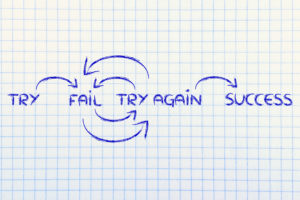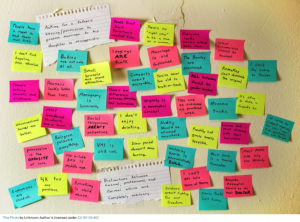Now that our society seems once again to say it values merit and excellence, we should be very careful to define it and be sure we can measure it. Perhaps it is easier to think about how we measure the opposite: failure. Is that easy to measure? To be fair, no! Not in real life. Almost everyone fails at some point in their life, and it is how they pick themselves up and learn from it that generally leads to success. Plus, if luck plays a key element, you wind up defining excellence the same way you would as a gambler who did well. Lucky.
How do we truly measure excellence? Some sports seem to offer easier measurements than others: gymnastics, track and field, etc. But, quite naturally, these sports define ground rules for competition, most often with a primary fear of performance enhancing drugs or some other form of cheating. That sets up a “catch me if you can” scenario where, if there is enough money in the sport, the physicians concoct drugs that are undetectable.
There was a time in my life when my wife Susan gave me a wonderful birthday present: a five-day course on how to be a professional bass fisherman: three 8-hour days of instruction in class with five professionals, one day of practice on the water, and one day of competition. It was exhausting but incredibly educational.
What did I learn? I was very good … I had all the right skills of lure selection, casting, sensing the bite, etc. But what disgusted me was learning the way professionals cheat. There is too much money in the game. I will not digress any further …
The pursuit of excellence sets up kind of a war like the online hacking games where security companies are trying to keep up with nefarious and devious attempts to break security systems. Now, with AI developing deep fakes, this problem just got so much worse.
It is interesting to watch how security companies try to stay ahead of this. They sponsor hackathons where creative people compete to illustrate their cleverness and thereby uncover security flaws. These events also offer these hotshot coders opportunities for gainful employment.
But our society thinks like our society, and most of the nefarious agents are abroad, in places with different moral codes than we have. If you listen carefully to their justifications when they are confronted, you are made frightfully aware that their definition of merit and excellence is far different than ours. It reminds me of the Vietnam War and why we lost it.
If we are on a path towards excellence, how would we measure it? If you Google the idea, you will see metrics like the following:
For Technical Tasks: Honesty, clarity, accuracy, comprehensiveness, accessibility, conciseness, professional appearance, and correctness are metrics. Who defines them and do we believe this truly brings about the changes we need?
For Healthcare: A quarterly dashboard that tracks clinical and operational data to help organizations improve the quality of care. Really? Why aren’t we measuring prevention?
Cost Efficiency: Saving money or resources to improve the quality of a product, service, or process. Not so fast, this is the reason we have offshored our pollution and the production challenges we would face here processing rare earth elements. We are killing people in the name of cost efficiency!
My career has been largely in the energy and power production technical areas. My concern is that we have a world that will run out of conventional fossil fuels at some point in the future, even if we were all to go back to burning wood, peat, and dung. Nuclear may be the long run winner, but getting there requires leadership and consensus that are not present nor actionable today.
Underlying all this is a world with way too many societies living in substandard conditions, and it is rightful to bring them clean water and safe living conditions. Plus, we have learned from China’s one-child policy that sustainable populations require more than simple answers.
So, imagine you are King of the World and can just decree the right paths to follow. You don’t need public opinion and can seek merit and excellence and select the best and the brightest members of your team. How would you measure their intellectual and social capabilities to get this job done? You quickly realize that no one individual can do it all. We are not in the days of Admiral Rickover where one man can define our navy’s power choices.
Do we know how to define this recruitment task? I fear not. We don’t agree on what we are looking for yet. So, how can we define what we are looking for?
Are we simply going to hope our politicians can do this? They rely on votes and the average American wouldn’t know this kind of excellence if it bit them in the ass … which it probably would because people who can work together to solve this problem, like me, are not popular, nor care to be. That is why we don’t run for office … we don’t like politics.
We must first step back from our challenges and ask tough questions and take some time, do some fundamental research, and consider our choices. Just saying we will hire the best and the brightest doesn’t mean we get anywhere. Worse yet, we are using politics.
Haven’t we learned anything? We are doomed to failure until and unless we go back to the authoritarian models for leadership: warts and all.
Perhaps we have a litmus test in progress.



